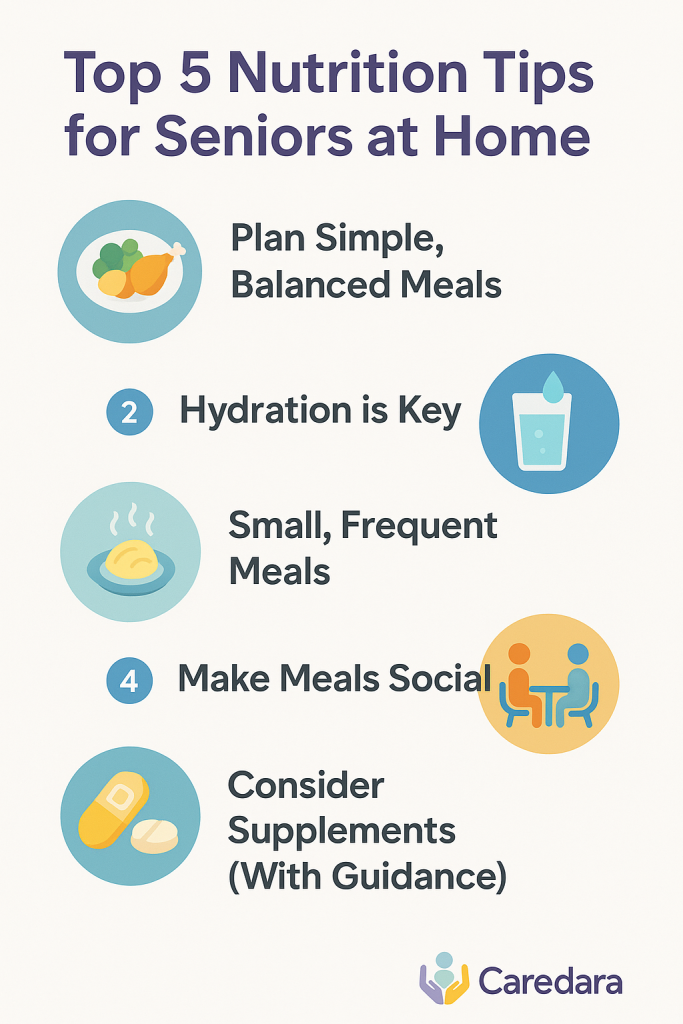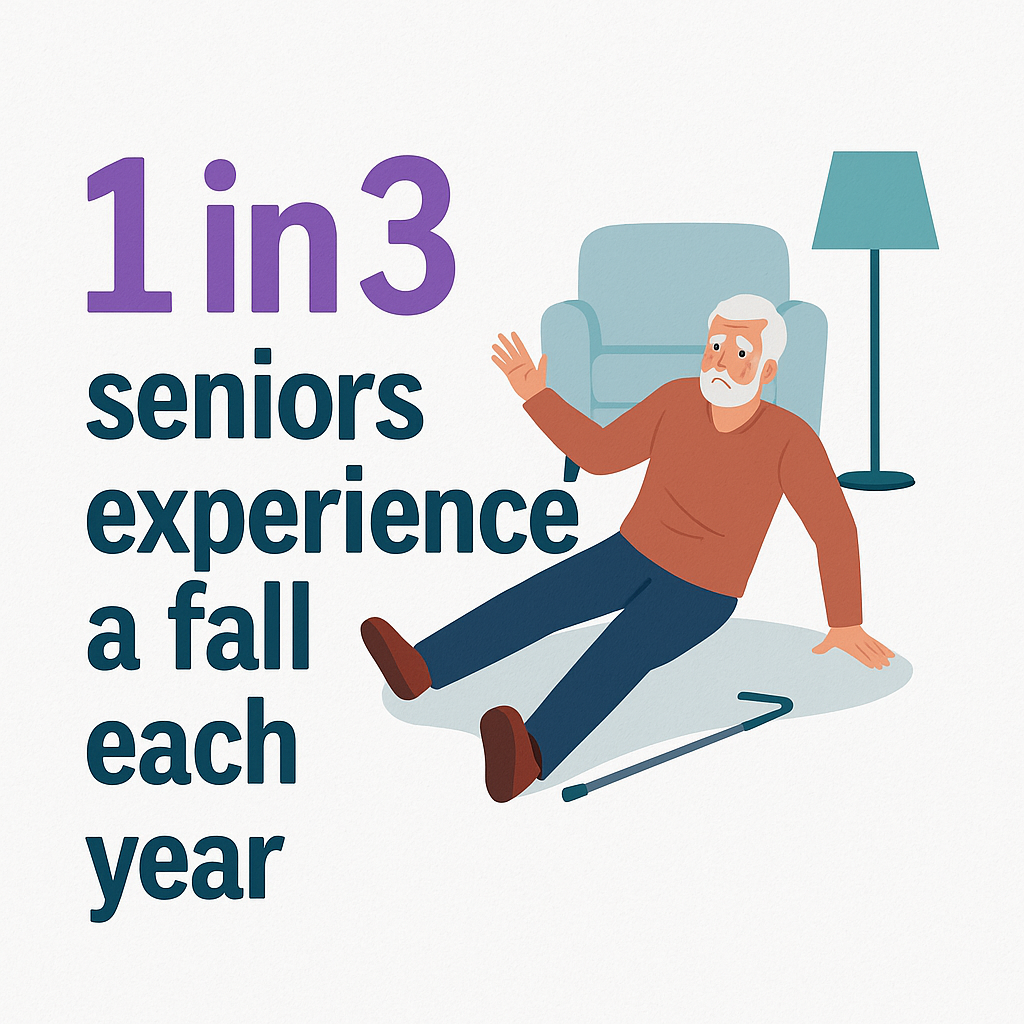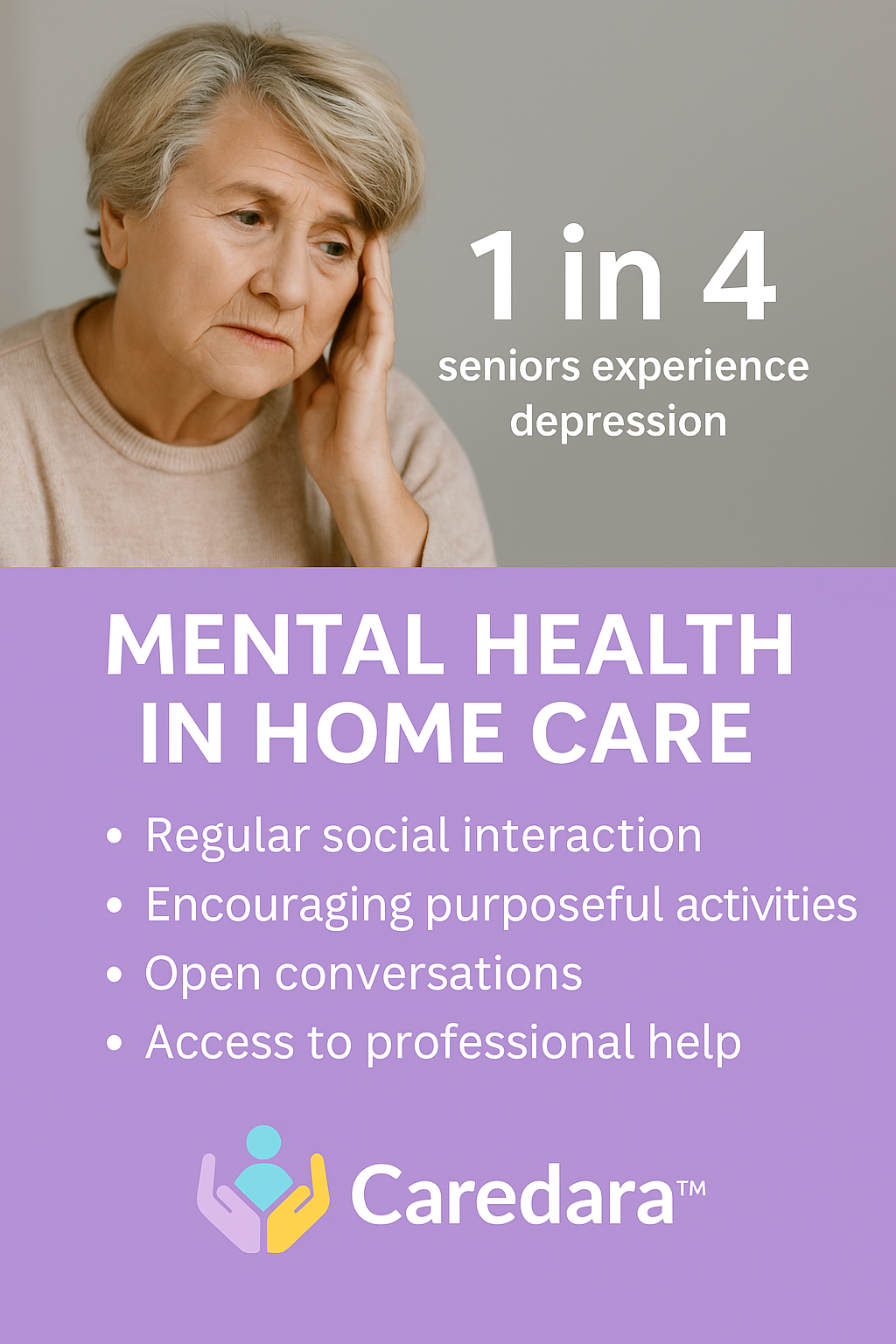
When it comes to supporting seniors at home, we often focus on mobility, safety, and medical care. But one of the most powerful tools for maintaining independence and quality of life is also one of the simplest: nutrition.
Why Nutrition Matters for Seniors
-
- Energy & Strength: A balanced diet helps maintain muscle strength and mobility, reducing the risk of falls.
- Disease Prevention: Good nutrition lowers the risk of chronic conditions such as heart disease, diabetes, and osteoporosis.
- Cognitive Health: Diets rich in fruits, vegetables, and omega-3 fatty acids have been linked to better brain function and reduced risk of dementia.
- Immune Support: Proper nutrition strengthens the immune system, helping seniors recover faster from illness.
The Challenges Seniors Face
Many seniors face barriers to eating well at home, including:
-
- Loss of appetite due to medication side effects or health issues.
- Limited mobility, making grocery shopping and cooking difficult.
- Financial constraints, leading to cheaper but less nutritious food choices.
- Isolation, which can make meals feel less enjoyable and lead to skipped meals.
Tips for Caregivers Supporting Senior Nutrition
-
- Plan Simple, Balanced Meals
Focus on nutrient-rich foods like lean proteins, whole grains, fruits, and vegetables. - Hydration is Key
Seniors are more prone to dehydration. Encourage water, soups, and herbal teas. - Small, Frequent Meals
Instead of three large meals, try five or six smaller ones throughout the day. - Make Meals Social
Eating together encourages better appetite and improves mental health. - Consider Supplements (With Guidance)
Vitamin D, B12, and calcium may be beneficial, but always consult a healthcare provider first.
- Plan Simple, Balanced Meals
The Role of Practitioners
Home care practitioners often play a key role in monitoring seniors’ nutrition. By observing eating habits, encouraging hydration, and raising concerns when changes occur, caregivers help prevent malnutrition and promote healthier aging.
Looking Ahead
Nutrition is about more than food—it’s about independence, dignity, and vitality. By prioritizing healthy eating at home, families and caregivers can help seniors stay stronger, happier, and more connected.
Because the right meal can be just as important as the right medicine.

